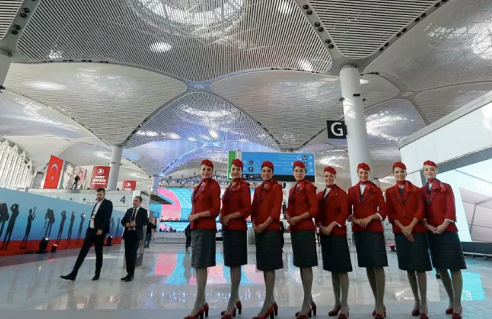* Photograph: POLARIS/LAIF
Click to read the article in Turkish
Turkey-Germany relations are reviving. Turkey's Treasury and Finance Minister Berat Albayrak visited Germany in September in response to German Foreign Minister Heike Maas's prior visit to Turkey the same month and said "A new era with Germany starts." He was followed by President Tayyip Erdoğan, his father in law who visited Berlin and Köln.
Now Germany's Economy Minister Peter Altmeier, accompanied by a 80 strong delegation including the bosses and CEOs of the country's big companies is on his way to Turkey. Many business people and corporate respresantitives are reportedly qued to find a place in the delegation.
German media coverage focusing on the event underlines that Germany's business conglomerates headed by Siemens, are hopeful of making business with Turkey and have their own share from the prospective tenders of billions of dollar value albeit problems between the two countries remain yet unresolved .
Some of the business people in the delegation are reported to have been introduced to Turkey's President during his recent Berlin visit and are packing for Ankara in order to improve their relations.
It is also reported that German Business circles' reservations about Turkey's economic records remain and these will be raised in the first round of talks during the scheduled Turkish-German Economic Forum. It is belived that "The Turkish government can not remain indifferent towards the concerns of German business since Turkey is more dependent than ever on foreign investment in the face of a prospective financial crisis."
Nevertheless, German business spokespersons under the light of recent developments are observed to keep a low profile on the expectations on rule of law and press freedom in Turkey raised in their prior statements.
Who is more dependent on whom?
Turkey's dependence on Germany is frequently underlined in the media reports on the revival of Turkish-German economic reations. The emphasis on the "assymetry" of these relations undoubtedly reflect a side of the truth.
Germany is Turkey's biggest foreign trade partner. More than 10 percent of Turkish imports as well as exports are to and from Germany.
According to Turkey Statistics Instution (TÜİK) data in the first 5 months of 2018 Turkey's exports to Germany was around USD 7 Bn while overall Turkish exports in the same period was some USD 60 Bn. And 9.4 Bn of Turkey's overall imports of USD 104.5 value in the Jan.-May 2018 period is coming from Germany... Nevertheless Turkey's share in overall German imports and exports is still very little.
Observers who comment on these figures and on the present difficulties surrounding Turkish economy generally converge on the opinion that "Turkey is bound to Germany."
Yet there is the other side of the coin.
By the end of 2017 the number of German firms of various size who invest in Turkey have alredy reached 7,250. Since Deutsche Bank's opening of its first branch in Istanbul in the 19th century the number of German companies directly investing or building partnerships in Turkey is constantly rising.
Today, most of the biggest German business conglomerates have respresentations in Turkey. Since the beginning of the 2000s many middle size German firms have started to invest in Turkey not only for trading but also for production in order to export to third countries. Turkey has become more attractive for German investors particularly after 2005 when the country started negotiations for accession for full membership in the EU.
Albeit Turkey has lost its prior attractiveness in the eyes of German investors in the aftermath of the crisis erupted in the German-Turkish political relations, they have not completely turned their backs to Turkey even during the most heated times. German investors did not welcome the "boycott Turkey" calls even when the crisis further deepened while Turkish President Erdoğan slammed German leaders with comparisons to the "Nazis".
Yet one could read comments between the lines of the articles appearing during the peak of the crisis that German economy too "is bound to Turkey". Many companies who had invested in Turkey were concerned that should they halt their activities in Turkey their investments in Germany too would suffer damages.
Particularly the machine industry and chemicals companies were concerned for falling turnovers should the relations with Turkey, that huge market, further worsened.
Finally, the German bosses albeit refraining from new investments, in spite of deeply worsened political relations did not withdraw their existing investments in Turkey.
A stark example is the abortive call by Mathias Döpfner, the president of the media giant Spinger to the German business people to publish a jointly signed newspaper ad for criticizing Erdoğan publicly. Yet, the CEOs of Germany's biggest business groups and banks turned a blind eye to the letter by Döpfner, who called colleagues to react with their personal signatures against the arrest of journalist Deniz Yücel, a reporter for Die Welt, one of Springer group papers.
Billion Dollar Project
A special report in Der Spiegel which was published prior to Turkish President Erdoğan's September visit to Germany sheds light to the fact that the continuity in the two counries' relations remains unaffected of the ongoing crisis.
According to the extensive report, German electronics and technology giant Siemens was very closely interested in Turkey's extensive railway upgrading project. The German government was reported to provide official guarantees for the project with total prospective value of EUR 35 Bn.
Der Spiegel, in its special report recalled the 19th century strategical railway "BagdadBahn" -tieing Berlin to Bosphorus and then to Baghdad- which was constructed with German financial support upon an agreement between the Ottoman Sultan Abdülhamid II and German Kaiser Wilhelm II.
"After 140 years, Turkey is once again planning a giant railway construction project. Passing though a heavy financial and foreign exchange crisis, Turkey expects to modernize its railway network with foreign know-how and money." Der Spiegel wrote. "And once again Germany is the preferred partner as it had been those days."
According to the report the railway project encompasses construction of new high-speed train lines, upgrading of the electrification and signalization systems of the existing lines, including the builiding of tunnels on these lines and production of the locomotives and wagons to be operated.
According to Der Spiegel report, Erdoğan via special envoys had proposed in summer that Siemens would lead the consortium who would assume the implementation of the project and national railway company Deutsche Bahn join the consortium and the German government provide financial support. The German government was yet to decide but welcomed to consider the proposal, the report said.
The German government and Siemens have not made a statement on the issue for yet unresolved financial issues. Nevertheless observers pointing to Republic of Turkey State Railways Company's (TCDD) recent orders of 10 high-speed trains from Siemens say: "During the construction of the BaghdadBahn the Ottomans too had preferred the rails by Krupp, and locomotives by Borsig, Henschel and Maffei" and comment that there will be no barriers for the project.
Reportedly, the new railway project will be at the top of the agenda of the German delegation headed by Altmeier and the initial public statements will be made during his Turkey visit.
German business concerns
While the German business people pack for hopefully profitable contracts durng their Turkey expedition, the business associations on the other hand make public statements that they are not mainly concerned with "profits as such" but conditions pertaining democracy and rule of law too will be on the table.
"Returning to rule of law and press freedom is obligatory" says, Dieter Kemp, President of the German Industrialists Union (BDI) in a public statement he made on the issue.
Meanwhile there are speculations that Erdoğan's pulling of all the strings together in his hands in economical and political matters, his self-appointed Chairmanship of the Turkey Wealth Fund, interference in the monetary policies of the Central Bank leads to raised eyebrows among the German business community.
In a public statement by Martin Wansleben an executive of the German Industrial and Business Chambers Union (DIHK) expressed their expectations for the "rebuilding of confidence" regarding such issues as legal security, investor guarantees and independence of the Central Bank.
German Federal Minister of Economy Altmeier is reported, or rather expected, to raise these issues in the early rounds of Turkish-German Economy Forum and Turkey can not remain indifferent to these expectations due to its economic difficulties. (GK/EK)





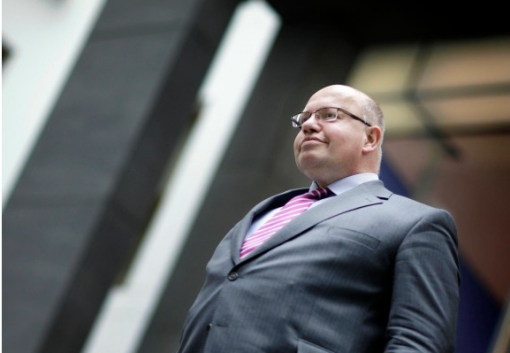
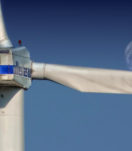
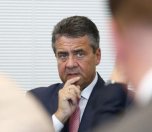

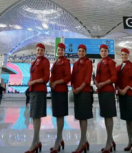

132.jpg)
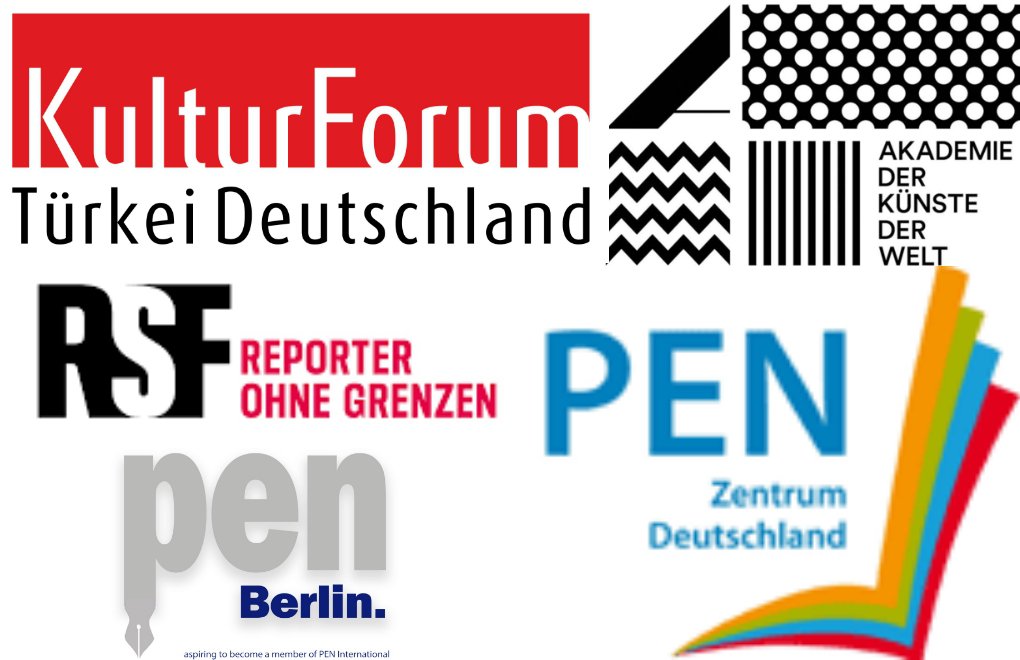
.jpg)

